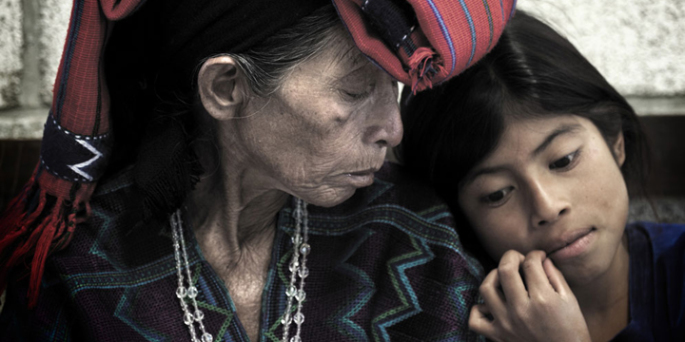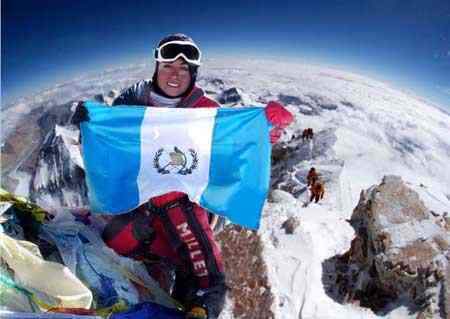
Guatemalan women: Heights to depths
GUATEMALA CITY — Andrea Cardona is the pride of this country, of Central America and, by extension, of our Latin America. She is the first Central American woman to climb the Everest, the world’s highest mountain.
Her compatriot Erika Susana, 11, was known by few. A few days ago, she was kidnapped, raped and murdered. She’s now practicing her Catholic faith on heights higher than Ms. Cardona’s — in heaven.
It is comforting to think of that in a nation where the violence of criminal gangs, drug trafficking, corruption and even political assassination are daily occurrences.
The local press gives more display to the photograph of a dismembered victim of crime than to a conference of Interior ministers, members of CELAC, gathered to discuss insecurity in the region.
Paradoxically, the United Nations has declared Guatemala to be in a “peace zone.” Truth is, life here is worth absolutely nothing.

Andrea Cardona gets the headlines, not that 11-year-old girl kidnapped in El Petén after the slaughter by hacking of her entire family because her stepfather was late in paying 300 quetzales (about 40 dollars) for a horse, although some say that the real motive was the girl’s kidnapping, not the debt.
No, sir, Ms. Cardona, 32, has climbed the world’s seven highest peaks, yet Erika’s murderers remain at large, after perpetrating that ghastly butchery.
Killed along with Erika were Amalia Pau, 36; her common-law husband, Jeremías Ramírez, 35; and the girls Ana Luz, 6, Sindi Yamilet, 3, and Verónica, 18 months. The adults were killed with machetes; the children died when the criminals set fire to the house — if you could call their shanty a house.
According to UNICEF, every five minutes a child dies in the world as a result of violence. As for Guatemala, we do not know the existence of statistics on the drama lived daily by boys and girls. Without citing figures, Guatemalan journalist Brenda Sanchinelli Izeppi has reported that bodily harm and sexual abuse add up to “truly alarming figures.”
According to her, “a survey done by the National Institute of Forensic Sciences (INACIF) revealed that sexual abuse of minors is common in the departments [provinces] of Guatemala, Escuintla, Jalapa, Chiquimula, Petén and Chimaltenango. Girls ages 1 to 9 constitute the most vulnerable group, most likely to suffer that type of abuse, with severe physical and psychological aftereffects.”
Another journalist, Rita María Roesch, went farther: “In Guatemala, we adult women and girls are exposed to attacks by males, to genre terrorism. The savage patriarchal mentality that developed at the dawn of civilization remains present in our archaic society.
“That mentality fuels the violence in which we live. Meanwhile, I ask myself, what will happen to the children who are under the protection of the PDH (Human Rights Agency)? Who will take care of them? What will happen to Guatemala?”
That beautiful and sisterly Central American nation, where our José Martí traveled on horseback from Puerto Barrios to Guatemala City, deserves a better fate. That’s something that politicians don’t think about until it’s election time.

